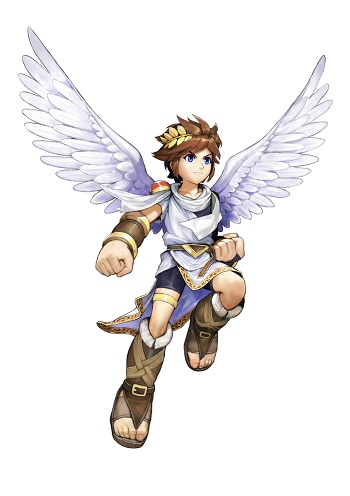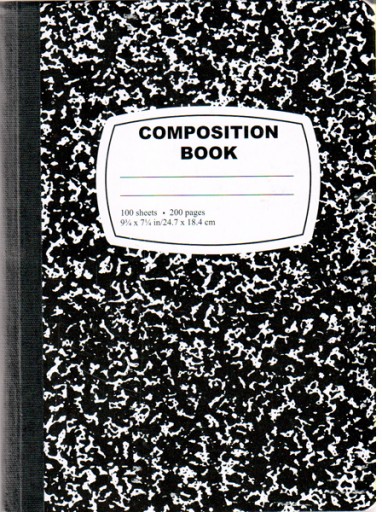 The ABCs of GMing
The ABCs of GMing
The ABCs of GMing is an ongoing series by contributing writer Joe Bouchard about the different skills and ideas needed to run a successful table-top game.
Organization
Organization is a very important skill to have when running any game. If someone is looking for a situation where organization is critical, one needs to look only to the days of D&D 3.5. By the end of the 3.5 print run, there were over 50 books printed with source materials – and that’s not including alternate settings such as Faerun, Ravenloft, or Eberron.
I can’t imagine someone possessing all of those hardcover books and having to keep such a giant stack handy at every game session. Chances are more that you had PDFs instead. However, the only real advantage to a throng of PDFs over hardcover books was having less things to carry. You still have to sift through all of that material, search feature or no.
Imagine your gaming party utilizes even half of those books for their characters. That’s a lot to sift through, saying nothing of including anything beyond the published rules and equipment.
So, yeah, I think you get the point that being organized is essential to your game.
The Basics
In every gaming system, there’s always a certain number of rules and statistics that come into play regularly. While you should make effort to memorize the most important ones, you only need to be able to readily access the rest. There’s always a stop in the action whenever the first person in the group asks for the falling damage rules, for instance. You don’t need to have these rules memorized, but you need to make sure you know where to find them.
Make a list of common rules, and include page notations. Make sure to include the rules you already know, as sometimes players will want to look them up when you’re in the middle of something else. If you have physical copies of sourcebooks, Post-It flags are perfect for this. Try to make as much as you can easy to reference, not just for yourself, but for all of your players. This cuts down on time spent flipping pages and checking indexes. Alternatively, you can create your own guide of common rules and gear by writing out the materials manually or printing specific pages and stapling them together to form a highly condensed booklet of sorts.
Know Your Player Characters
Nothing can be more frustrating for a player than a GM constantly asking what a character’s abilities does. This can be deterred by simply keeping your own version of your players’ character sheets. Don’t be afraid to make a detailed version that lists all of their abilities and either what they do, or where in the source material you can reference it. And for systems that utilize a class system, keep those class entries handy.
Additionally, every now and then ask your players to give you their character sheets between game sessions. Not only should you probably be checking their work anyways, but it helps you to keep on top of their growing abilities. For those GMs that own all the books for a system, it also helps to know which books players are dipping into so you’ll know which books you should consistently have available. Chances are your players aren’t using all 50 of those 3.5 books, and in most cases only 10-12 that will need a place by the gaming table. Part of organization is prioritizing your environment and knowing what not to lug around if you don’t need to.
As a side note, give your NPCs the same attention! The only thing more frustrating for players if a GM has to spend time trying to look up some rule is if they’re doing it for a character they created themselves!
Keep Track Of Where Material Comes From
What has become more and more common in gaming circles is the use of the Internet to look up rules and equipment for game systems. For example, you can see the cache of Pathfinder materials over at pfsrd.com. It’s a great repository for all the things available to Pathfinder players, and while it may be slow to update new rules and equipment, it’s mostly well documented, with each listing having its source reference listed so you know what book it comes from.
Still, even with all of this information readily available online, sometimes it can be tricky to access it all. Don’t be afraid to set limitations, such as a rule stating that materials can’t be used unless someone owns the book or PDF. (Pathfinder Society Organized Play does this, for instance.) You can’t always rely on information posted online, and you may not always be able to access that information. Moreover, some online supplemental material can be taken out of context and not properly understood by the players or GMs. In my experience, establishing limits like this is a pretty common rule within my circle of tabletop gamers, although we are all pretty good about collectively owning all the books we wish to pull materials from.
Take Notes – And Then Utilize Them
When leading your players through a story, take notes on anything that you instinctively feel is important to keep track of. It’s important to remember what your characters know and don’t know. After a session is over, go back over your notes and take the time to compile them in a more meaningful fashion. GMs should be efficient in their record keeping, and if you get your notes from multiple game sessions organized in a meaningful and easy to reference way, your game administration will benefit greatly. No doubt your players will do the same, but it’s important for you to keep your own too, especially if it’s your own campaign being traversed. The more information that is readily available to you, the better your story will be for your players.
![]()
Next time, we’ll cover “Patience” and how / when to give your players leniency and time to process. In the meantime, tell us how you organize your games over on our social media pages!
Photo Credits: Abbey Library at St.Florian – Austria from Stift St. Florian; Pit from Kid Icarus by Nintendo; The Colbert Report – The Word from Comedy Central; Composition Notebooks from Mead Corporation




